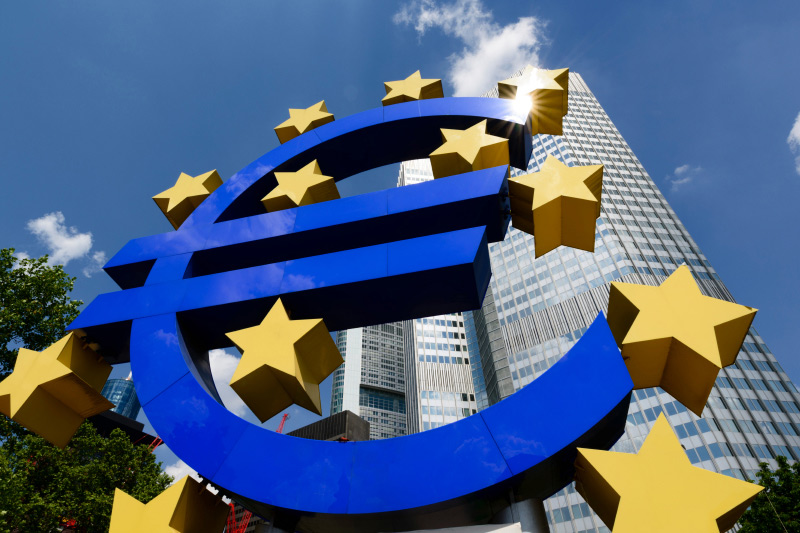By Rahul Karunakar
(Reuters) - There is little chance of a significant rebound in the euro zone economy in the next two years as low inflation and high unemployment keeps the currency bloc lagging behind its peers, a Reuters poll found on Thursday.
The prospect of deflation in the euro zone was one of the biggest risks to global recovery, according to economists polled globally who answered an extra question.
With fiscal austerity and high unemployment still taking its toll across the zone, expectations for weak industrial output and consumer demand are driving tepid economic growth projections, and in turn, low inflation forecasts.
A strong euro, which is expected to retain its current levels throughout the remainder of the year, is also seen holding down economic progress, by making euro zone exports relatively expensive, and inflation. [EUR/POLL]
Having shrunk 0.4 percent last year, the bloc's economy will average just 1.0 percent growth this year and 1.5 percent in 2015 and 2016, according to the poll of over 70 economists taken in the past week.
That is only one-third of the growth rate expected for Britain and even below the 1.7 percent forecast for the United States, which had a disastrous start to the year.
"While the European economic recovery probably picked up a bit of speed in the second quarter of the year, there are growing signs that Q2 was as good as it is likely to get," said Jessica Hinds, European economist at Capital Economics.
"It looks like the pace of growth in the euro zone is flattening off or even slowing."
The euro zone is set to grow by at best 0.3-0.4 percent on a quarterly basis until the end of next year.
CENTRAL BANKS DIVERGING
The U.S. Federal Reserve and the Bank of England are set to start hiking interest rates by the first half of 2015 as their economies pick up and inflation rises. [ECILT/US] [ECILT/GB]
In contrast, the European Central Bank announced several measures last month to push inflation higher and is expected to maintain ultra easy monetary policy for years more.
Those measures - which included cutting interest rates to new record lows and offering another round of cheap cash with a condition requiring it to be lent - weakened the euro temporarily, but they have done very little to stave off deflation fears.
The poll consensus was for inflation to average 0.7 percent this year, well below the ECB's danger zone of 1 percent, and not reaching its close to 2 percent target until 2017 at least.
Although those expectations were little changed from last month's poll, more economists are now calling for much lower inflation than the ECB's own staff projections.
"I don't think that cheap loans are the solution to the woes of the euro zone," said Samuel Slama, economist at Fathom Financial Consulting. "Injecting liquidity in the system is just a legacy from the crisis and will not address the issues."
Germany - the locomotive of the region - is expected to lead the way. [ECILT/DE]
But economic recovery in the other core economies is expected to remain muted and weigh on overall growth - the French government is forecast to miss an already extended deadline on deficit reduction. [ECILT/FR]
The outlook for Greece, Ireland, Spain and Portugal, though, was slightly more positive compared with three months ago. [ECILT/ES]
But there was no change to the outlook for the job market in the entire region over the next three years, which still has extremely high rates of unemployment.
While central bank policies have meant jobless rates in the United States and Britain have fallen sharply and much faster than expected, most countries in the bloc are going to struggle to make meaningful inroads against high unemployment before 2017.
Carl Tannenbaum, chief economist at Northern Trust, noted that slightly better growth expectations for Spain still won't address one of its biggest problems.
"It will not do much to diminish unemployment that remains higher than 20 percent and a youth jobless rate around 50 percent – levels that risk deep social dislocation and a 'lost' generation of young workers."
(Additonal reporting by bureaus across Europe; Analysis and polling by Hari Kishan Editing by Jeremy Gaunt)
